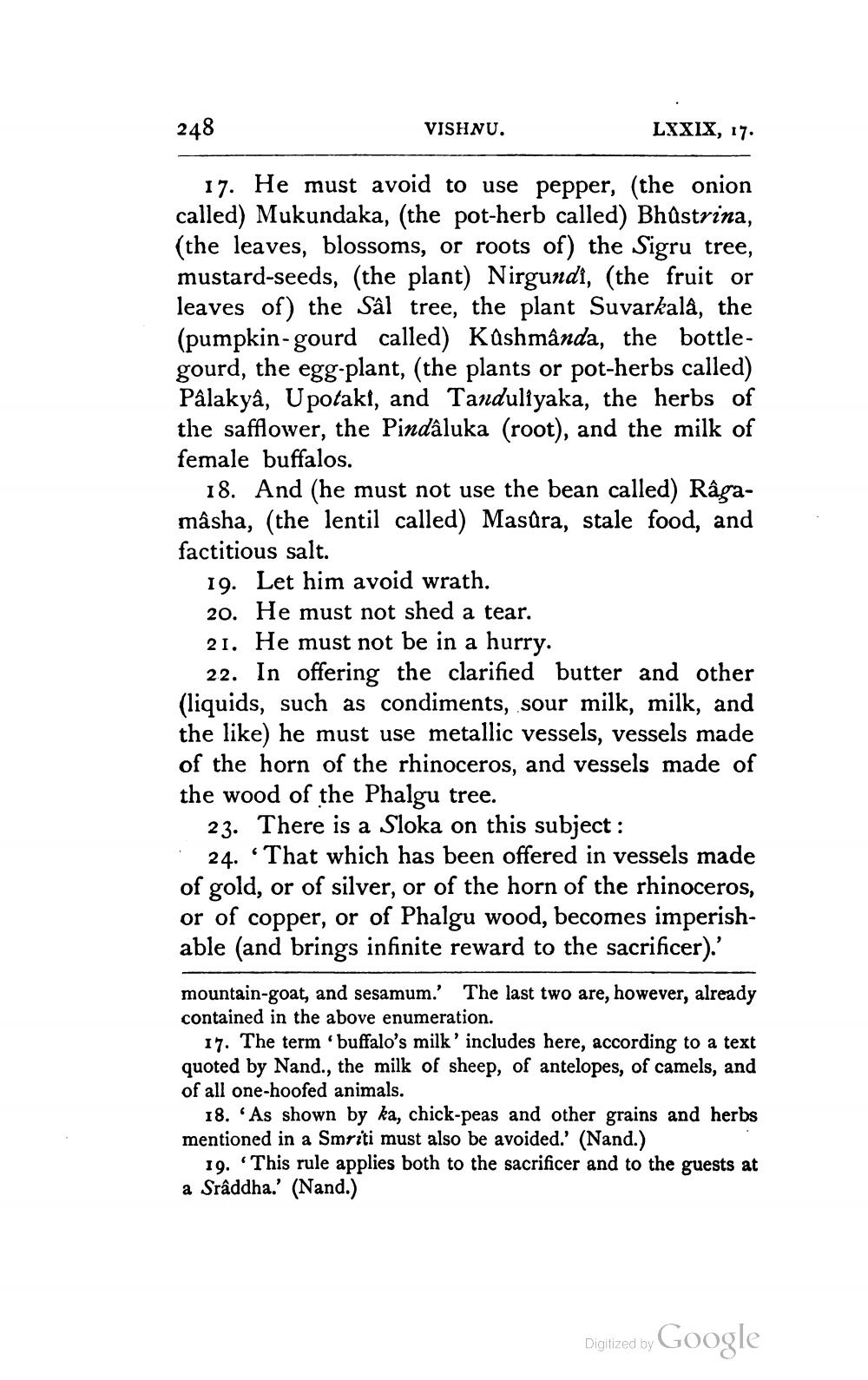________________
248
VISHNU.
LXXIX, 17.
17. He must avoid to use pepper, (the onion called) Mukundaka, (the pot-herb called) Bhůstrina, (the leaves, blossoms, or roots of) the Sigru tree, mustard-seeds, (the plant) Nirgundi, (the fruit or leaves of) the Sâl tree, the plant Suvarkalâ, the (pumpkin-gourd called) Kashmânda, the bottlegourd, the egg-plant, (the plants or pot-herbs called) Pålakyâ, Upotakl, and Tanduliyaka, the herbs of the safflower, the Pindaluka (root), and the milk of female buffalos.
18. And (he must not use the bean called) Râgamâsha, (the lentil called) Masura, stale food, and factitious salt.
19. Let him avoid wrath. 20. He must not shed a tear. 21. He must not be in a hurry.
22. In offering the clarified butter and other (liquids, such as condiments, sour milk, milk, and the like) he must use metallic vessels, vessels made of the horn of the rhinoceros, and vessels made of the wood of the Phalgu tree.
23. There is a Sloka on this subject :
24. “That which has been offered in vessels made of gold, or of silver, or of the horn of the rhinoceros, or of copper, or of Phalgu wood, becomes imperishable (and brings infinite reward to the sacrificer).'
mountain-goat, and sesamum.' The last two are, however, already contained in the above enumeration.
17. The term 'buffalo's milk' includes here, according to a text quoted by Nand., the milk of sheep, of antelopes, of camels, and of all one-hoofed animals.
18. As shown by ka, chick-peas and other grains and herbs mentioned in a Smriti must also be avoided.' (Nand.)
10. "This rule applies both to the sacrificer and to the guests at a Sraddha.' (Nand.)
Digitized by Google




